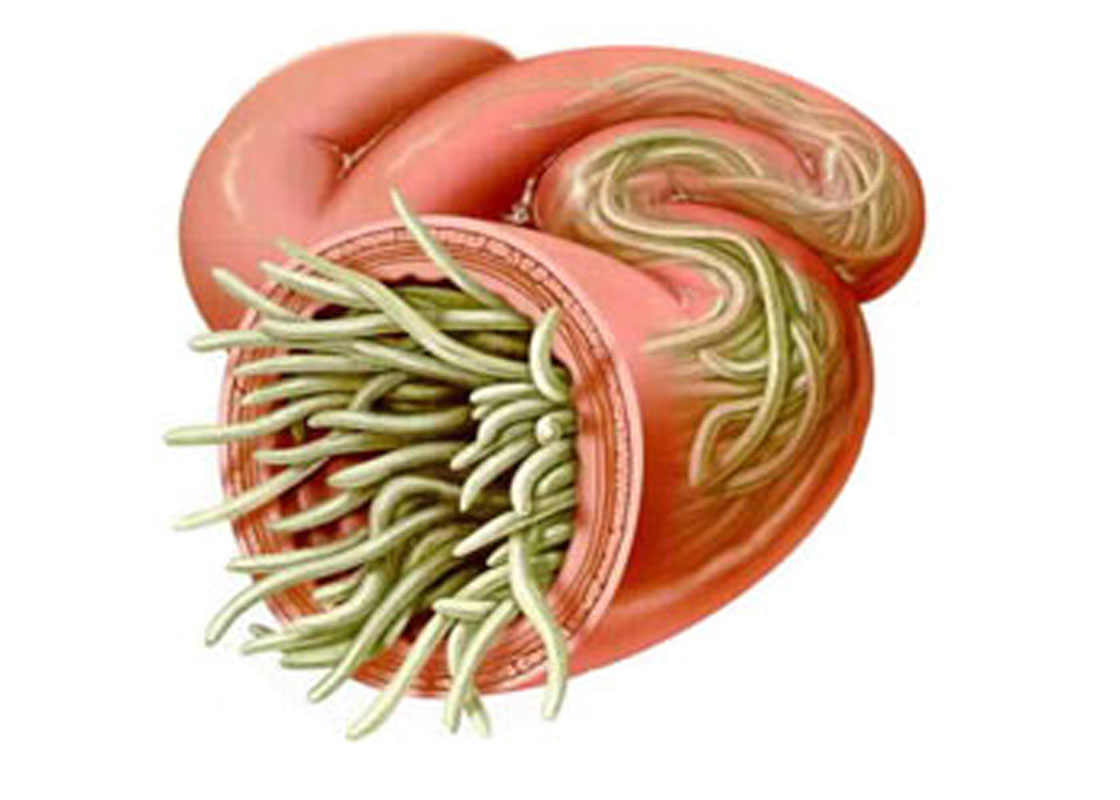Worms are parasites that thrive in the intestines of other organisms. They are capable of causing harm in the human body. The different types of worm commonly found in the human body are tapeworm, roundworm, hookworm, whipworm and pinworm. The most common infestation is caused by tapeworm, hookworm and roundworm.
Worm infestation is a very common health problem especially in developing countries. It is said to be contagious no matter how careful one tries to be. Infestation can come in several ways such as:
- Drinking untreated water/dairy product or fluid
- Consumption of uncooked or undercooked meat
- Kids from the school playground
- Swimming in a pool of untreated water
- Contact with infected animal
- Raw and unwashed salads
- Poor sanitation and personal hygiene
- Consumption of contaminated food
- Use of human excretion as fertilizer
- Sexual and skin contact
The harmful effects of worms in the body are not exclusive to adults. Children are also prone to worm infestation. These worms which are barely visible to the human eye cause illnesses that vary in intensity and seriousness. An untreated worm infestation can lead to the death of the host. Worms can cause:
- Loss of appetite which leads to poor growth and malnutrition in children
- Diarrhea (may include vomiting and loose bowels)
- Bleeding in the intestines which can lead to anaemia and loss of iron
- Difficulty with absorption of nutrients in the intestine
- Organ damage
- Itching around the rectum
- Tiredness
- Abdominal cramps
- Reduction in literacy leading to poor learning and general mental performance in children and adult productivity
Deworming refers to the treatment of an organism to free it of worms. Due to the severity of the effects of worms, regular deworming is recommended to avoid chronic illnesses. According to a UNICEF report, researches show that the growth rate and weight gain of children who are regularly dewormed are higher than the others. Regular deworming is the best solution for many childhood illnesses. Deworming once every six months is sufficient, as recommended by WHO. But where worm infestation is more frequent, then deworming should be more frequent as directed by the physician.
Mebendazole and Albendazole are most common chewable tablets for deworming. However, they are not to be used by pregnant or breastfeeding women. Consult a physician on more accurate information for dosage. Good sanitation, personal hygiene and healthy food handling practices help limit chances of infection.
Other home remedies exist for deworming. You may try:
- Grate two pieces of carrot and eat on an empty stomach in the morning
- Mix one tablespoon of papaya juice with one teaspoon of honey and consume in the morning on an empty stomach. This should be followed by a glass of warm milk mixed with castor oil.
- A mixture of pomegranate bark and water should be taken thrice a day for adults and children
- Mix ground pumpkin seeds and water to deworm
- Consume three cloves of garlic daily
- A tablespoon of ground coconut during breakfast should be followed by 30ml of castor oil after two and half hours
- A mixture of wormwood and olive oil
- A mixture of one tablespoon of bitter gourd juice with a glass of buttermilk once a day for three consecutive days
Sincerely, thank you for reading.
You are the reason why we keep telling these stories. Our mission is to inform, educate, and inspire through objective storytelling and journalism. We are deeply grateful for your belief in our mission. To enhance your user experience, we've got off a lot of things such as obstructive ads. However, telling these stories and making these researches require funds. If you enjoy our content and you want to see us continue, please kindly support us by donating here.You can also send us an email hello@yolar.co. Thank you for your continuous support. ![]()



